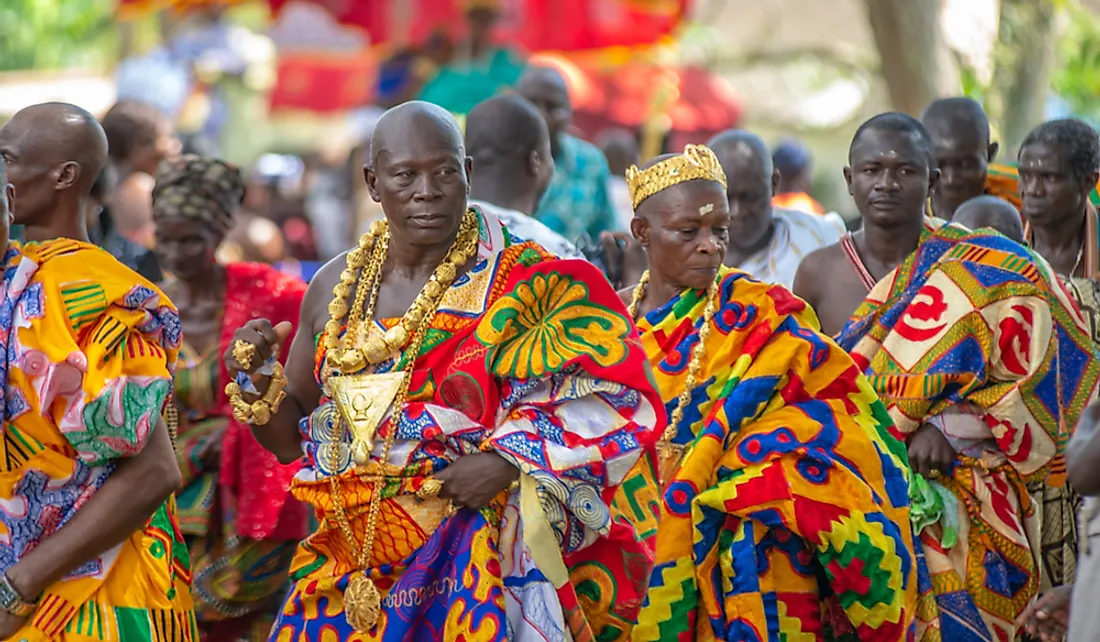The Cultural Significance Of Boankra In Ghana
Share

Nestled in the Ashanti Region of Ghana, Boankra is not just a location; it embodies a rich tapestry of history, culture, and community. Known primarily for its inland port, Boankra serves as a vital hub for trade and transportation, significantly impacting the local economy. However, its cultural significance extends far beyond logistics, reflecting the traditions, values, and social structures of the Ghanaian people.
Historical Context

Understanding the cultural significance of Boankra requires a glimpse into its historical background. The area has been a focal point for trade since ancient times, connecting various regions of Ghana and facilitating the exchange of goods and ideas. The establishment of the Boankra Inland Port in the early 2000s marked a new chapter, enhancing its role as a commercial center. This development not only boosted the local economy but also reinforced Boankra's position as a cultural melting pot.
The Role of Traditional Leadership

In Ghana, traditional leadership plays a crucial role in maintaining cultural values and social cohesion. Boankra is home to several traditional leaders who oversee community affairs, ensuring that the customs and practices of the people are preserved. These leaders are often involved in mediating disputes, organizing community events, and promoting local traditions. Their influence extends to various aspects of life, including festivals, rituals, and communal gatherings, which are integral to the identity of the Boankra community.
Festivals and Celebrations
Ghana is renowned for its vibrant festivals, and Boankra is no exception. The annual celebrations, often tied to agricultural cycles or historical events, serve as a platform for showcasing local culture. These festivals are characterized by traditional music, dance, and colorful attire, providing an opportunity for community members to come together and celebrate their heritage.
Key Festivals
-
Akwasidae Festival: This festival is celebrated by the Ashanti people and is marked by the display of royal regalia, traditional drumming, and dance. It serves as a time for the community to honor their ancestors and seek blessings for the future.
-
Homowo Festival: Although primarily associated with the Ga people, the Homowo Festival is celebrated in various forms across Ghana. In Boankra, it signifies the end of hunger and the beginning of a bountiful harvest, bringing together families and friends for feasting and merriment.
Traditional Arts and Crafts
The cultural significance of Boankra is also reflected in its traditional arts and crafts. Local artisans engage in various crafts, including pottery, weaving, and wood carving. These crafts not only serve practical purposes but also carry cultural meanings, often depicting stories, proverbs, and historical events.
Pottery
Pottery in Boankra is not merely functional; it is an art form that has been passed down through generations. Local potters create beautifully crafted items that are used in daily life and during ceremonies. The designs often incorporate symbols that hold cultural significance, making each piece unique.
Weaving
Weaving is another important craft in Boankra, with traditional kente cloth being a prime example. This colorful fabric is woven with intricate patterns and is often worn during special occasions. The patterns and colors of kente cloth are rich in meaning, representing various aspects of Ghanaian culture, including social status, history, and moral values.
Culinary Traditions
Food is an essential aspect of any culture, and Boankra's culinary traditions reflect the region's history and diversity. Local dishes often feature staple ingredients such as cassava, maize, and plantains, prepared in ways that have been cherished for generations.
Popular Dishes
-
Fufu: A staple dish made from cassava and plantains, fufu is often served with a variety of soups and stews. It is a communal dish, symbolizing unity and togetherness.
-
Jollof Rice: This beloved dish is a must-try for anyone visiting Boankra. Made with rice, tomatoes, and spices, Jollof rice is often served at celebrations and gatherings, showcasing the region's culinary flair.
The Impact of Modernization
As Boankra continues to develop, the influence of modernization is evident. The establishment of the inland port has brought new opportunities for trade and commerce, attracting people from various backgrounds. While this has led to economic growth, it also poses challenges to the preservation of traditional culture.
Balancing Tradition and Progress
The community faces the task of balancing the benefits of modernization with the need to preserve its cultural heritage. Efforts are being made to integrate modern practices while maintaining traditional values. Community leaders and local organizations are actively promoting cultural education, ensuring that younger generations understand and appreciate their roots.
Conclusion
The cultural significance of Boankra in Ghana is a testament to the resilience and richness of its heritage. From its historical roots as a trade hub to its vibrant festivals, traditional arts, and culinary delights, Boankra offers a unique glimpse into the heart of Ghanaian culture. As the community navigates the challenges of modernization, the spirit of Boankra remains strong, ensuring that its cultural legacy endures for generations to come.
For those looking to experience the vibrant culture of Boankra firsthand, consider planning your visit. You can find great accommodations and flights to make your journey seamless. Check out Hotels & Flights and Transfers to start your adventure today!



